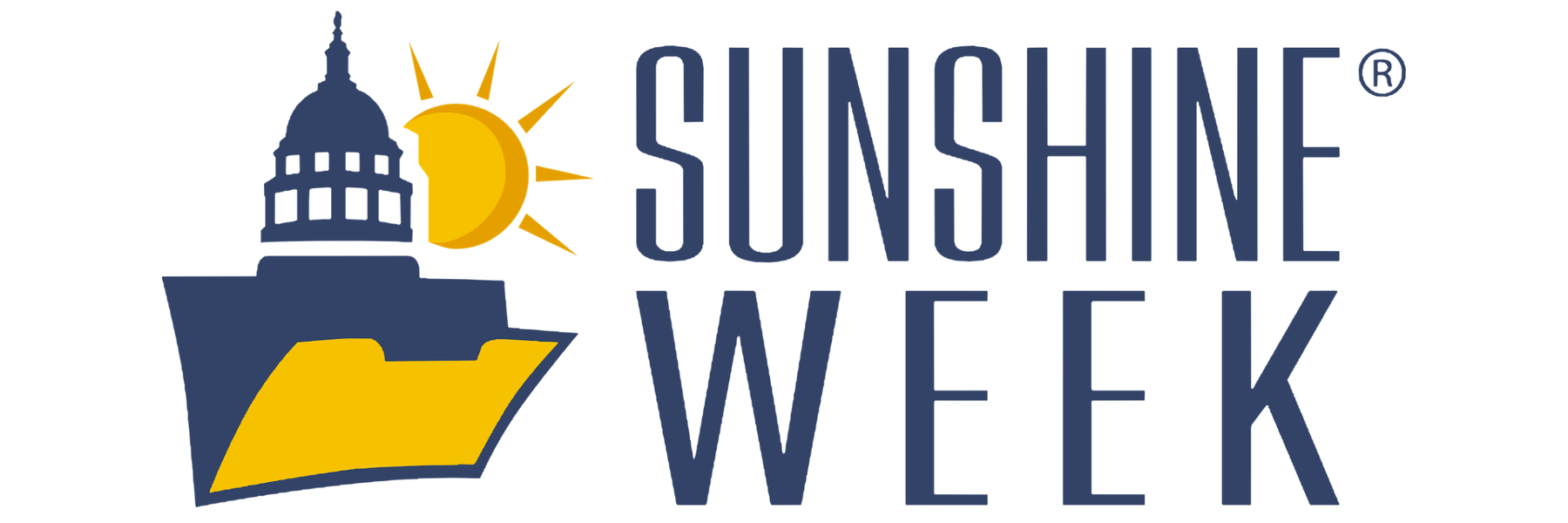Last week, we didn’t push many user-facing changes as we continue to push forward on some major long-term projects, so we decided to look at the data that a lot of people have been asking about: Has the shutdown impacted FOIA responses at MuckRock? The answer was surprising. Plus: Come help us kick off a Sunshine Week special project.
For previous site improvements, check out all of MuckRock’s release notes, and if you’d like to get a list of site improvements every Tuesday - along with ways to help contribute to the site’s development yourself - subscribe to our developer newsletter here.
Shutdowns stall transparency, but we’re not seeing that in our data yet
We’ve had a few people ask how the shutdown has impacted things around MuckRock. With government offices closed down, do we just get to kick back and relax?
Not even a little bit. The government shutdown is, at this point, still a partial one, meaning we’re still getting responses from the hard-working federal agencies that are still open - plus, 60 percent of our requests are to state and local agencies, which are operating as normally as they ever do.
But some requesters we talk with have seen their incoming communications drop by half or even more since the shutdown began on December 22nd, 2018. We were curious if our data showed a similar trend, so we spent a little bit of time digging into it.
Short answer: As far as we can tell, so far the federal government shutdown has not impacted the overall volume of incoming FOIA responses we’re getting. In fact, it’s remained remarkably consistent during the period from January 2nd, 2019 through Jan 13th, 2019, versus the same dates the year before: For every two communications we send out, we get one back.
The exact percentages were 29.37% of communications were inbound in 2019, and 28.51% of communications were inbound from agencies during the same period in 2018. We also looked at a broader range of dates, starting from December 22nd, and found similar results.
Does this mean FOIA is flowing normally? No. Without FOIA officers in the office, things do grind to a halt. Even if FOIA offices were considered an essential staff position, FOIA officers still rely on other government employees to search for, review, and pass along responsive documents.
I have no doubt that when we look at the FOIA Annual Reports released in March of 2020, we’ll see a significant impact from this shutdown. I also worry that the shutdown could have a longer-term impact in terms of recruiting and retaining civic-minded FOIA officers who care about their work and the mission behind it. FOIA officers are already feeling understaffed, undertrained, and poorly equipped to handle increasing request loads with antiquated technology.
Pay instability at a time of already decreasing morale is devastating for these offices.
For more on the impact of the shutdown on the FOIA process, check out the FOIA.Wiki’s article on it, which notes that even without agents being able to process requests, the 20 day statutory deadlines appear to remain in effect.
But back to the key question: Why haven’t our incoming communications dipped yet in our data? I have a few theories but no real answers until I’m able to dig into the data a bit deeper. My guesses:
- FOIA offices do a major push before the Christmas and New Years holidays, meaning that there’s usually a bit of a backoff to begin with in early January. I’m guessing we’ll see a significant drop in a week or two vs. last year.
- Increasing use of electronic filing platforms has meant that an increasing number of communications coming from FOIA offices are automated, so just because we’re seeing incoming communications, doesn’t mean there’s anyone behind them.
There’s some data to back this up: An early look at mailed responses, which always trail a bit, seems to show that they’re down a bit, while responses coming in via agency portals is roughly twice what it was last year. We’ll keep digging into the data, but if you’d like to crunch some yourself, register for our Release Notes newsletter at the top of this page or keep reading for information on joining us in person.
In the meantime, we’d like to hear your FOIA shutdown story. Have you been hearing back from FOIA offices? Are you a FOIA officer who is unable to do your work? Let us know.
Kicking off Sunshine Week preparation this Tuesday at Code for Boston
We’ve got some fun things in the works to celebrate Sunshine Week this year, and you can help us out by joining us Tuesday night’s at Code for Boston, where we’ll be hacking on a new project that anyone can contribute to, whether you’re a veteran programmer or someone just interested in help researching how public records can make a more transparent democracy for all of us.
Find out details about the meetup and RSVP at Code for Boston’s Meetup page.
Come hack on MuckRock
Speaking of contributing, we have a growing group of volunteer hackers helping to make MuckRock’s suite of tools better every day. We have a project and a weekly newsletter, “Release Notes,” that highlights everything we’re working on. Register to get a summary of site updates each week and details on open issues you can help with.
Check out some of our issues labeled “help wanted” for ideas on where’s good to start, or just pop into our Slack’s #Developers channel.
Subscribers to the weekly newsletter get exclusive data sets, FOIA-related scripts, and other transparency hacker tidbits exclusively for subscribers. You can subscribe to to the newsletter at the top or bottom of this page.
If you want to contribute better FOIA tools for thousands of requesters, there’s a number of ways to help. If you find a bug you can email us directly or open an issue on GitHub.
If you do the latter, please search open issues first to make sure it hasn’t already been reported. If it has been reported previously, please leave an additional comment letting us know it’s an issue for you, particularly if you can provide more details about when it crops up or what you think is causing the problem.
In addition to the new newsletter, we have a developer channel on the MuckRock Slack.
Image via Wikimedia Commons




